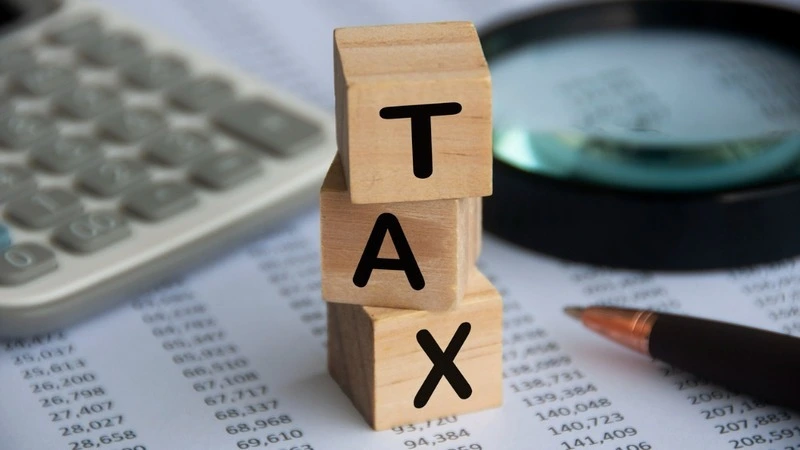Understanding personal income tax is crucial for financial literacy and can help you make informed decisions about spending, saving, and investing. Personal income tax is the tax levied by public sectors on individuals' earnings, including wages, salaries, and other forms of income such as dividends, interest, and rental income. Here's an essential guide to help you grasp the key concepts of personal income tax and navigate the intricacies of tax filing.

Income Tax Basics
Income tax is typically progressive, meaning the rate increases as an individual's income grows. Each income level falls into a specific tax bracket, which dictates the rate at which it is taxed. It's important to note that being in a higher tax bracket does not mean all income is taxed at the higher rate; instead, income is taxed across various brackets – this is known as marginal taxation.
Types of Taxable Income
Your taxable income isn't just your salary. It includes various income types, such as:
- Employment Income: Wages, salaries, bonuses, and tips.
- Investment Income: Interest, dividends, and capital gains.
- Passive Income: Rental income, certain royalties, or income from enterprises in which an individual is not actively involved.
- Retirement Income: Pensions, annuities, and distributions from retirement accounts.
Deductions and Credits
A key part of understanding personal income tax is knowing how deductions and credits can lower your tax bill.
- Deductions: These reduce the amount of income that is subject to tax. Deductions include certain expenses like mortgage interest, charitable contributions, and qualifying medical expenses.
- Tax Credits: These reduce your tax liability directly. Credits can be for education expenses, childcare costs, or energy-efficient home improvements, among others.
Filing Your Taxes
When it comes time to file your taxes, you can do it yourself using tax software, hire a professional tax preparer, or use online tax filing services. The basic steps include:
1. Gathering Documents: Collect all necessary documents such as W-2 forms, 1099s, receipts, and records of any additional income or deductions.
2. Completing Your Tax Return: Fill out the required tax forms that correspond to your financial situation.
3. Submitting Your Tax Return: Tax returns can be filed electronically, which is faster and more secure than mailing paper forms.
4. Paying Any Taxes Owed: If you owe taxes, they must be paid by the tax-filing deadline to avoid penalties and interest.
5. Receiving Your Refund: If you've paid more taxes throughout the year than you owe, you'll receive a refund from the public sector.
Paying Taxes Throughout the Year
In many jurisdictions, employers withhold taxes from employees' paychecks, remitting them to the public sector throughout the year. Self-employed individuals and others without withholding might need to make estimated tax payments quarterly.
Understanding Tax Documentation
- W-2 Form: Details an employee's wages and tax withholdings for the year.
- 1099 Forms: Report various types of income, from affordablelance work (1099-NEC) to interest and dividends (1099-INT and 1099-DIV).
Deadlines and Extensions
Tax filing and payment deadlines are set annually. If you cannot file by the deadline, you can request an extension, which extends the time to file, but not the time to pay any taxes owed.
Tax Planning
Effective tax planning can help you minimize your tax liability. It involves strategies like deferring income, splitting income among family members, investing in tax-deferred or tax-exempt opportunities, and making the very of deductions and credits.
Stay Informed
Tax laws can change frequently, so staying informed about changes that may affect your tax situation is important. This can help ensure you maximally benefit from new deductions, credits, and strategies.
Consult With Professionals
Because taxes can be complex and mistakes can be costly, consulting a tax professional is often a prudent choice, especially if you have multiple sources of income or significant assets.
In Conclusion
Understanding your personal income tax and the obligations that come with it is a fundamental aspect of managing your personal finances. By staying informed, taking advantage of deductions and credits, and planning accordingly, you can handle your income taxes more effectively and sometimes even reduce the total amount you owe each year. Always be proactive in your tax planning and seek professional advice when needed to navigate the complexities of personal income tax.
Explore the Tranquil Bliss of Idyllic Rural Retreats

Ultimate Countdown: The 20 Very Legendary Gaming Consoles Ever!

Understanding Halpin and its Influence

Affordable Full Mouth Dental Implants Near You

Discovering Springdale Estates

Illinois Dentatrust: Comprehensive Overview

Embark on Effortless Adventures: Unveiling the Top in Adventures Made Easy Outdoor Equipment

Unveiling Ossur Valves: Innovation in Prosthetics

Unlock the Full Potential of Your RAM 1500: Master the Art of Efficient Towing!
